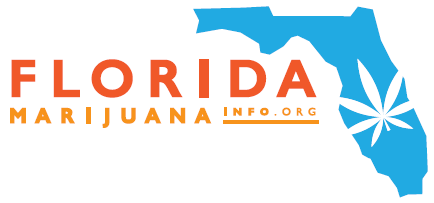The Similarities and Differences!
Florida celebrated a big win for medical marijuana on November 8, but it also created a kind of complicated situation, since the state already had a more limited medical marijuana law in place. Instead of replacing that law, those two laws are going to continue to operate side by side for the time being. Here’s a simple guide to follow, hope it finds you well.
What Are The Two Laws?
The Compassionate Medical Cannabis Act is the medical marijuana law that was passed in 2014. An earlier version of Amendment 2 had been run that year, but failed to get enough votes to be passed. The Compassionate Medical Cannabis Act was instead written into law by the state legislature and the Governor. This more limited act was meant to make regular medical cannabis available to patients with terminal diseases (having a life expectancy of one year or less), and a special low-THC variety of cannabis available to patients with cancer, severe muscle spasms or a condition that causes seizures.
Amendment 2 is the law that was passed on November 8 of 2016. This law expands the list of qualifying conditions and makes marijuana with THC available to all patients on the list, not just those that have terminal conditions.
Who Can Now Qualify For Medical Marijuana In Florida?
These are the following conditions that are clearly spelled out in one or both of the laws.
- – Terminal Diseases: CMCA
- – Cancer: CMCA and A2
- – AIDS: A2
- – ALS: A2 and CMCA
- – Chron’s Disease: A2
- – Epilepsy: A2 and CMCA
- – Glaucoma: A2
- – HIV: A2
- – Multiple Sclerosis: A2 and CMCA
- – Parkinson’s Disease: A2 and CMCA
- – Post-Traumatic Stress Disorder (PTSD): A2
- – Seizures: CMCA
- – Severe And Chronic Muscle Spasms: CMCA
Which Law Should I Get My Medicine Under?
If you have a condition that qualifies you under both laws, like cancer or multiple sclerosis, the Compassionate Medical Cannabis Act will allow you to begin the process of getting your medicine immediately since it is already in effect. Amendment 2 does not actually become law until early January, and it will then be as much as six months before patients are issued cards and allowed to begin obtaining their medicine.
Another issue to consider is whether THC is necessary for your condition. If low-THC cannabis is not expected to help your condition, you may need to wait until it becomes available under Amendment 2. A qualified physician can help you to determine what type of cannabis is best for you.
There is also one final complication to consider that has yet to be ironed out. Amendment 2 doesn’t limit physicians strictly to the above list. They can also potentially prescribe for conditions that are of the same type or are very similar to the ones listed above. The language in the bill is vague on this, so we’ll have to wait on the state to finish drafting its complete regulations before we know more.
The Biggest Potential Difference – Prescription Amounts
Right now, the law limits physicians to supplying 45 days worth of medical cannabis under the Compassionate Medical Cannabis Act. The amount for Amendment 2 has not been decided yet. That is up to the Florida Department of Health to determine for themselves, as they finalize regulations in early 2017. There was no specific language about allowing patients to grow their own plants in the bill, however, so it is safe to assume that option is off the table no matter which way you go.














 OMD Agency
OMD Agency
Recent Comments